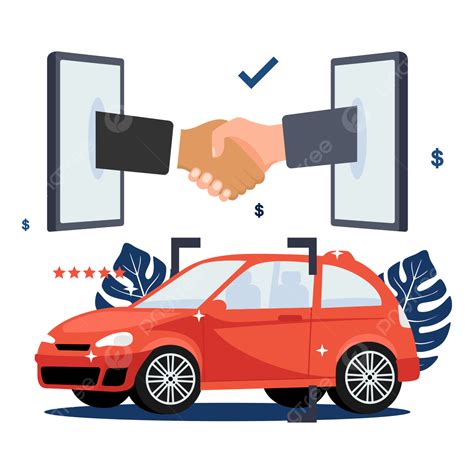
A Texas woman’s private car sale on Facebook Marketplace turned into a viral nightmare after the buyer allegedly used the vehicle in a crime, leading to significant legal and personal repercussions for the seller.
A Texas woman, identified as Gracie Hornsby, is grappling with the fallout of selling her BMW on Facebook Marketplace after discovering the vehicle was allegedly involved in a crime shortly after the sale. The ordeal has thrust her into a legal quagmire and a public relations crisis as she works to clear her name.
Hornsby listed her white 2014 BMW 328i for sale on Facebook Marketplace, hoping for a straightforward transaction. She soon found a buyer who paid in cash and promptly took possession of the vehicle. The sale, completed with what seemed like proper documentation at the time, quickly spiraled into a distressing situation when Hornsby received a call from law enforcement. “I got a call from a detective, and he was like, ‘Hey, we found your car in a totally different city, and it was used in a crime,’” Hornsby recounted in an interview.
The buyer, whose identity has not been publicly disclosed, purportedly used the BMW in connection with an unspecified crime far from where the transaction took place. Details of the alleged crime remain scarce, but the car’s involvement has made Hornsby a person of interest in the ensuing investigation, causing her considerable distress and anxiety.
Hornsby insists she had no prior knowledge of the buyer’s intentions and is fully cooperating with the authorities to prove her innocence. The situation has not only entangled her in a criminal investigation but has also subjected her to public scrutiny and online harassment. Social media users have voiced opinions and speculations, exacerbating her distress and adding pressure as she navigates the legal process.
To combat the misinformation and public speculation, Hornsby turned to TikTok, where she shared her story to set the record straight and garner support. Her videos detailing the sequence of events, her cooperation with law enforcement, and her emotional distress have garnered significant attention, drawing both sympathy and skepticism.
“I’m trying to clear my name,” Hornsby stated in one of her TikTok videos. She emphasized her innocence and expressed frustration with the situation, highlighting the challenges of proving her lack of involvement in the alleged crime. The use of social media has allowed her to control the narrative to some extent and appeal directly to the public for understanding and support.
The legal implications for Hornsby remain uncertain as the investigation progresses. She is working closely with her attorney to provide all necessary documentation and evidence to demonstrate that she was not involved in any criminal activity. The case underscores the potential risks associated with online marketplaces and private sales, where verifying the identity and intentions of buyers can be challenging.
This incident also brings to light the complexities of liability in such transactions. While Hornsby completed the sale and transferred ownership of the vehicle, the subsequent misuse of the car by the buyer has created a legal and ethical dilemma. Law enforcement and legal experts are examining the circumstances to determine the extent of Hornsby’s responsibility, if any.
The viral nature of Hornsby’s story has sparked a broader conversation about safety and security in online marketplaces. Users are now more aware of the potential dangers of selling goods to strangers and the importance of taking extra precautions to protect themselves. Recommendations include conducting thorough background checks, meeting in public places, and ensuring all legal paperwork is meticulously completed.
“I would have never sold my car on Facebook Marketplace if I knew this would happen,” Hornsby lamented. Her experience serves as a cautionary tale for others considering similar transactions, highlighting the need for vigilance and awareness in the digital marketplace. The case remains ongoing, with Hornsby continuing to work with law enforcement and legal counsel to resolve the matter and clear her name.
Expanded Details and Context
The digital marketplace has revolutionized the way people buy and sell goods, offering convenience and accessibility that were previously unimaginable. Platforms like Facebook Marketplace, Craigslist, and eBay have become ubiquitous, connecting buyers and sellers from all walks of life. However, this ease of access also comes with inherent risks, particularly when dealing with private transactions. The case of Gracie Hornsby underscores these risks, highlighting the potential for legitimate sales to turn into legal nightmares.
The Rise of Online Marketplaces
Online marketplaces have grown exponentially in recent years, driven by the increasing prevalence of smartphones, internet access, and social media. Facebook Marketplace, launched in 2016, quickly gained popularity due to its integration with the social network’s vast user base. The platform allows users to buy and sell items within their local communities, making it a convenient option for individuals looking to declutter, find deals, or generate income.
However, the relative anonymity and lack of stringent verification processes on these platforms can attract unscrupulous individuals. Scammers, fraudsters, and even criminals have exploited these marketplaces, leading to a range of issues, from petty theft to more serious offenses.
The BMW Sale and Subsequent Events
Gracie Hornsby’s decision to sell her BMW on Facebook Marketplace was, in many ways, a typical transaction. She listed the vehicle with a detailed description and photos, negotiated a price with the buyer, and completed the sale after receiving cash payment. According to Hornsby, the transaction appeared legitimate, with the buyer presenting no immediate red flags.
However, the situation took a dark turn when Hornsby received a call from a detective informing her that her former car had been used in a crime in a different city. The news was shocking and unsettling, thrusting her into a legal and emotional whirlwind. Hornsby immediately cooperated with law enforcement, providing all available information about the sale and the buyer.
The details of the alleged crime remain confidential, but the mere association with the incident has had significant repercussions for Hornsby. She has been questioned by police, subjected to public scrutiny, and forced to defend her innocence on social media. The stress and anxiety caused by the situation have taken a toll on her personal and professional life.
Legal and Ethical Considerations
The case raises several important legal and ethical questions about liability and responsibility in private sales. When a seller transfers ownership of a vehicle to a buyer, does the seller retain any responsibility for the buyer’s subsequent actions? The answer is complex and depends on the specific circumstances of the case.
Generally, once a sale is complete and the title is transferred, the seller is no longer legally responsible for the vehicle’s use. However, there are exceptions. If the seller had knowledge of the buyer’s intention to use the vehicle for illegal purposes, or if the seller failed to disclose known defects or issues with the vehicle, they could potentially be held liable.
In Hornsby’s case, there is no evidence to suggest that she had any knowledge of the buyer’s criminal intentions. She completed the sale in good faith and provided all necessary documentation. Therefore, it is unlikely that she would be held legally responsible for the buyer’s actions.
However, the legal process can be lengthy and stressful, even for innocent parties. Hornsby has had to hire an attorney, spend time answering questions from law enforcement, and deal with the emotional toll of being associated with a crime.
The Role of Social Media
Social media has played a significant role in shaping the narrative around Hornsby’s case. After facing public scrutiny and online harassment, she turned to TikTok to share her story and defend her innocence. Her videos have garnered millions of views and sparked a wide range of reactions.
Some viewers have expressed sympathy and support for Hornsby, praising her for her transparency and courage in sharing her experience. Others have been more skeptical, questioning her motives and suggesting that she may be hiding something. The comments section of her videos has become a battleground for conflicting opinions, highlighting the power of social media to amplify both support and criticism.
Hornsby’s use of social media is a double-edged sword. On one hand, it has allowed her to control the narrative and appeal directly to the public for understanding. On the other hand, it has exposed her to a barrage of negativity and speculation, exacerbating her stress and anxiety.
Safety and Security in Online Marketplaces
Hornsby’s experience serves as a cautionary tale for anyone considering buying or selling goods on online marketplaces. While these platforms offer convenience and accessibility, they also come with inherent risks. It is essential to take precautions to protect yourself from scams, fraud, and other potential dangers.
Here are some tips for staying safe when using online marketplaces:
- Verify the identity of the buyer or seller: Request identification and check their social media profiles to ensure they are who they say they are. Be wary of individuals who are reluctant to provide information or who have recently created their accounts.
- Meet in a public place: Arrange to meet in a well-lit, public location, such as a coffee shop, shopping center, or police station. Avoid meeting at your home or in a secluded area.
- Bring a friend or family member: If possible, bring someone with you when you meet the buyer or seller. Having a second person present can deter potential criminals and provide an extra layer of security.
- Trust your instincts: If something feels off or suspicious, don’t proceed with the transaction. It’s better to err on the side of caution than to become a victim of fraud or crime.
- Use secure payment methods: Avoid using cash or unsecured payment methods like personal checks. Opt for secure payment platforms like PayPal or Venmo, which offer buyer and seller protection.
- Document everything: Keep records of all communication, transactions, and agreements. This documentation can be valuable if you need to file a complaint or pursue legal action.
- Inspect the item thoroughly: Before completing the purchase, carefully inspect the item to ensure it is as described. Ask questions and address any concerns before handing over payment.
- Be wary of deals that seem too good to be true: If the price is significantly lower than similar items, it could be a sign of fraud or a stolen item. Exercise caution and do your research before making a purchase.
- Inform yourself about common scams: Stay up-to-date on the latest scams and fraud tactics used on online marketplaces. This knowledge can help you identify and avoid potential threats.
- Report suspicious activity: If you encounter suspicious activity or become a victim of fraud, report it to the marketplace platform and to law enforcement.
The Future of Online Marketplaces
The incident involving Gracie Hornsby highlights the need for greater safety and security measures on online marketplaces. As these platforms continue to grow in popularity, it is crucial that they implement stronger verification processes, monitor user activity, and provide resources for users to protect themselves from scams and crime.
Some marketplaces are already taking steps to improve safety. For example, Facebook Marketplace has introduced features like buyer and seller ratings, transaction history, and reporting tools. However, more needs to be done to address the underlying issues that make these platforms vulnerable to abuse.
One potential solution is to implement stricter identity verification requirements. This could involve requiring users to provide government-issued identification, undergo background checks, or verify their phone numbers and email addresses. While these measures may add friction to the user experience, they could significantly reduce the risk of fraud and crime.
Another approach is to use artificial intelligence and machine learning to detect suspicious activity. These technologies can analyze user behavior, communication patterns, and transaction data to identify potential scammers and fraudsters. By proactively identifying and removing these individuals from the platform, marketplaces can create a safer environment for all users.
Ultimately, creating a safe and secure online marketplace requires a collaborative effort between platform providers, law enforcement, and users. By working together, we can reduce the risk of fraud and crime and ensure that these platforms remain a valuable resource for buying and selling goods.
The case of Gracie Hornsby serves as a stark reminder of the potential dangers of online marketplaces and the importance of taking precautions to protect yourself. While the convenience and accessibility of these platforms are undeniable, it is essential to remain vigilant and informed to avoid becoming a victim of fraud or crime. Her story underscores the need for greater safety and security measures on online marketplaces and highlights the challenges of navigating the legal and emotional fallout of a private sale gone wrong. As Hornsby continues to work to clear her name and move forward, her experience serves as a cautionary tale for others considering similar transactions.
Frequently Asked Questions (FAQ)
- What exactly happened to Gracie Hornsby?
Gracie Hornsby sold her 2014 BMW 328i on Facebook Marketplace. Shortly after the sale, she was contacted by law enforcement and informed that her former vehicle had been used in a crime in another city. This has led to legal and personal troubles for Hornsby as she works to prove her innocence.
- What crime was the car allegedly used in?
The specific details of the crime have not been publicly disclosed by law enforcement. The article states that the car was used in connection with an “unspecified crime,” and details are scarce as the investigation is ongoing.
- Is Gracie Hornsby a suspect in the crime?
While Hornsby is not explicitly named as a suspect, she has been considered a “person of interest” due to her prior ownership of the vehicle. She is fully cooperating with law enforcement to demonstrate her lack of involvement in the alleged crime.
- What steps did Gracie Hornsby take after learning about the crime?
After learning that her former car was used in a crime, Hornsby immediately contacted law enforcement and provided all available information about the sale and the buyer. She also hired an attorney to help her navigate the legal process and has used TikTok to share her story and defend her innocence against online speculation.
- What can people learn from Gracie Hornsby’s experience when selling items online?
Hornsby’s experience serves as a cautionary tale for anyone using online marketplaces. It highlights the importance of taking precautions to verify the identity of buyers, meeting in safe, public locations, and documenting all aspects of the transaction. It also underscores the potential legal and personal ramifications that can arise even from seemingly straightforward private sales.
Additional Information and Analysis
The case of Gracie Hornsby brings into focus several critical issues relevant to the modern digital marketplace. The ease with which transactions can be conducted online often overshadows the inherent risks involved, particularly when dealing with individuals who may have malicious intentions.
The Anonymity Factor
One of the primary challenges in online marketplaces is the relative anonymity afforded to both buyers and sellers. While platforms like Facebook Marketplace require users to have accounts, the level of verification can vary significantly. It is often possible for individuals to create fake profiles or use burner accounts to conceal their true identities. This anonymity can embolden criminals and make it difficult for law enforcement to track down perpetrators of fraud or other crimes.
In Hornsby’s case, the buyer may have presented a credible facade during the transaction, but his true intentions were only revealed after the fact. This underscores the limitations of relying solely on superficial interactions and the importance of conducting more thorough due diligence.
The Legal Gray Areas
The legal implications of online marketplace transactions can be complex and nuanced. When a product is sold and ownership is transferred, the seller generally relinquishes control over how the product is used. However, there are exceptions to this rule. If the seller had reason to believe that the buyer intended to use the product for illegal purposes, they could potentially be held liable for aiding and abetting the crime.
In Hornsby’s case, there is no evidence to suggest that she had any knowledge of the buyer’s criminal intentions. However, the fact that her former car was used in a crime has still subjected her to legal scrutiny and emotional distress. This highlights the importance of seeking legal counsel and understanding the potential liabilities associated with online transactions.
The Impact of Social Media
Social media has become an increasingly powerful tool for both disseminating information and shaping public opinion. In Hornsby’s case, TikTok has served as a platform for her to share her story, defend her innocence, and garner support from the online community. However, it has also exposed her to criticism, speculation, and harassment.
The viral nature of social media can amplify both positive and negative narratives, making it challenging for individuals to control their public image. While Hornsby has attempted to manage the narrative by sharing her perspective, she has also been subjected to the whims of the online mob, who can be quick to judge and condemn without full knowledge of the facts.
Best Practices for Online Marketplace Transactions
To mitigate the risks associated with online marketplace transactions, it is essential to follow certain best practices:
- Verify the identity of the buyer or seller: Request identification, check social media profiles, and look for red flags, such as recently created accounts or inconsistent information.
- Meet in a safe, public location: Avoid meeting at your home or in a secluded area. Choose a well-lit, public place, such as a coffee shop or police station.
- Bring a friend or family member: Having a second person present can deter potential criminals and provide an extra layer of security.
- Trust your instincts: If something feels off or suspicious, don’t proceed with the transaction. It’s better to err on the side of caution.
- Use secure payment methods: Avoid using cash or unsecured payment methods. Opt for secure payment platforms that offer buyer and seller protection.
- Document everything: Keep records of all communication, transactions, and agreements.
- Inform yourself about common scams: Stay up-to-date on the latest scams and fraud tactics used on online marketplaces.
- Report suspicious activity: If you encounter suspicious activity or become a victim of fraud, report it to the marketplace platform and to law enforcement.
The Need for Platform Accountability
The case of Gracie Hornsby also raises questions about the responsibility of online marketplace platforms to protect their users. While these platforms provide a valuable service by connecting buyers and sellers, they also have a duty to ensure that their services are not used for illegal purposes.
Platforms can take several steps to improve safety and security, including:
- Implementing stricter identity verification requirements: Requiring users to provide government-issued identification or undergo background checks.
- Monitoring user activity: Using artificial intelligence and machine learning to detect suspicious behavior and identify potential scammers.
- Providing resources for users to protect themselves: Offering educational materials, safety tips, and reporting tools.
- Cooperating with law enforcement: Working closely with law enforcement to investigate crimes and bring perpetrators to justice.
By taking these steps, online marketplace platforms can create a safer environment for all users and help prevent incidents like the one experienced by Gracie Hornsby. The evolving landscape of digital commerce necessitates a proactive approach to security, ensuring that the convenience of online transactions does not come at the expense of user safety and well-being.
Conclusion
Gracie Hornsby’s story is a stark reminder of the hidden risks that can lurk beneath the surface of seemingly straightforward online transactions. Her experience, transforming a simple car sale into a viral nightmare involving legal and reputational challenges, underscores the vulnerabilities inherent in digital marketplaces. While the anonymity and accessibility of these platforms offer undeniable convenience, they also create opportunities for malicious actors to exploit the system.
The incident highlights the critical importance of due diligence, robust security measures, and platform accountability in the digital age. As online marketplaces continue to evolve and expand, both users and platform providers must remain vigilant and proactive in safeguarding against fraud, crime, and other potential threats.
For individuals, this means taking the necessary steps to verify identities, conduct transactions in safe environments, and trust their instincts when something feels amiss. For platforms, it requires implementing stricter verification processes, monitoring user activity, and cooperating fully with law enforcement to ensure that their services are not used to facilitate illegal activities.
Ultimately, creating a secure and trustworthy online marketplace requires a collaborative effort between users, platforms, and law enforcement. By working together, we can mitigate the risks and ensure that the convenience of digital commerce does not come at the expense of safety and security. Gracie Hornsby’s experience serves as a cautionary tale, urging us to remain vigilant, informed, and proactive in navigating the ever-evolving landscape of online transactions. The lessons learned from her ordeal can help prevent similar incidents and foster a safer, more secure digital marketplace for all.









